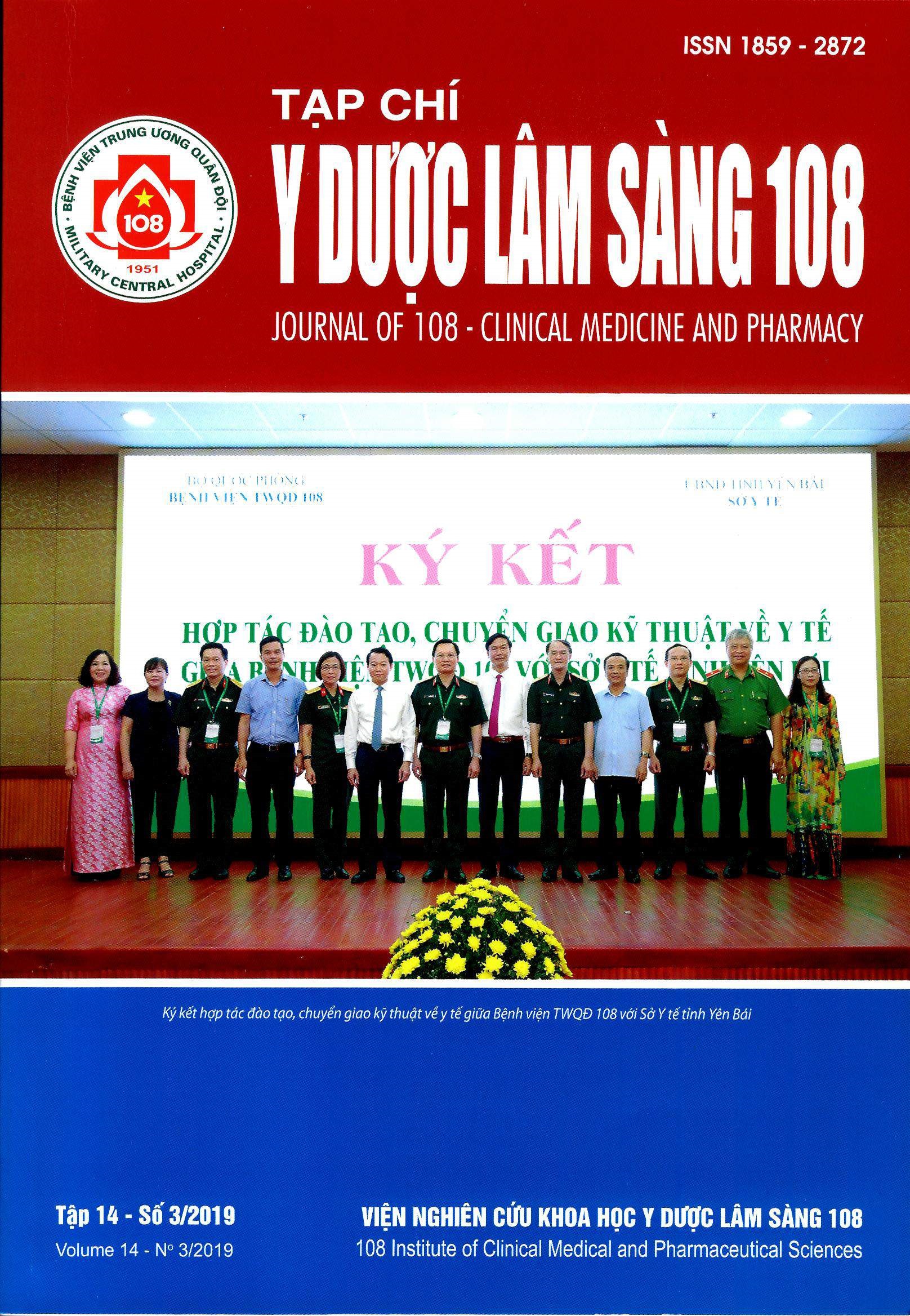Effectiveness of percutaneous computed tomography guided transthoracic radiofrequency ablation for treating inoperable non-small cell lung cancer
Main Article Content
Keywords
Abstract
Summary
Objective: To assess the efficiency and complications of percutaneous computed tomography guided transthoracic radiofrequency ablation for treating inoperable non-small cell lung cancer. Subject and method: 42 patients with non-small cell lung cancer were treated with radiofrequency ablation. Result: The mean age of the patients was 65 years (ranged from 58 to 81). The cancer stage I accounted for 23.8%, II for 52.3%, III for 16.8% and IV for 7.1%. The tumor had an average diameter of 31mm (ranged from 13 to 47mm). The average hospital stay was 4.5 +/- 2 days. Disease control rate reached in 95.3% and the overall survival was 18 months. The most common after-wave complications were hemoptysis (33.3%), followed by pneumothorax (11.9%) and pneumonia (11.1%). Conclusion: This study demonstrates the feasibility, efficacy, and safety of radiofrequency ablation for non-small cell lung cancer. Additional trials are needed to determine safety and efficacy.
Keywords: Non-small cell lung cancer, radiofrequency ablation.
Article Details
References
2. Nguyễn Bá Đức, Trần Văn Thuấn, Nguyễn Tuyết Mai (2010) Điều trị nội khoa ung thư. Nhà xuất bản y học, tr. 81-93.
3. The National Institute for Health and Clinical Excellence (NICE) (2010) Percutaneous radiofrequency ablation for primary or secondary lung cancers. Interventional procedures guidance Published online nice.org.uk/guidance/ipg372: 9-36.
4. Lencioni R (2008) Lung cancer can be treated with radiofrequency ablation (Rapture study). The Lancet Oncology.
5. Sano Y (2007) Feasibility of percutaneous radiofrequency ablation for intrathoracic malignancies: A large single-center experience. Cancer 109(7): 1397-1405.
6. Nomura M, Yamakado K, Nomoto Y et al (2008) Complications after lung radiofrequency ablation: risk factors for lung inflammation. Br J Radiol 81(963): 244–249.
7. Hiran CF (2005) Radiofrequency ablation for the treatment of non–small cell lung cancer in marginal surgical candidates. The Journal of Thoracic and Cardiovascular Surgery 129(3 ).
8. Lee JM, Jin GY, Goldberg SN et al (2004) Percutaneous radiofrequency ablation for inoperable non-small cell lung cancer and metastases: Preliminary report. Radiology 230(1): 125-134.
 ISSN: 1859 - 2872
ISSN: 1859 - 2872
